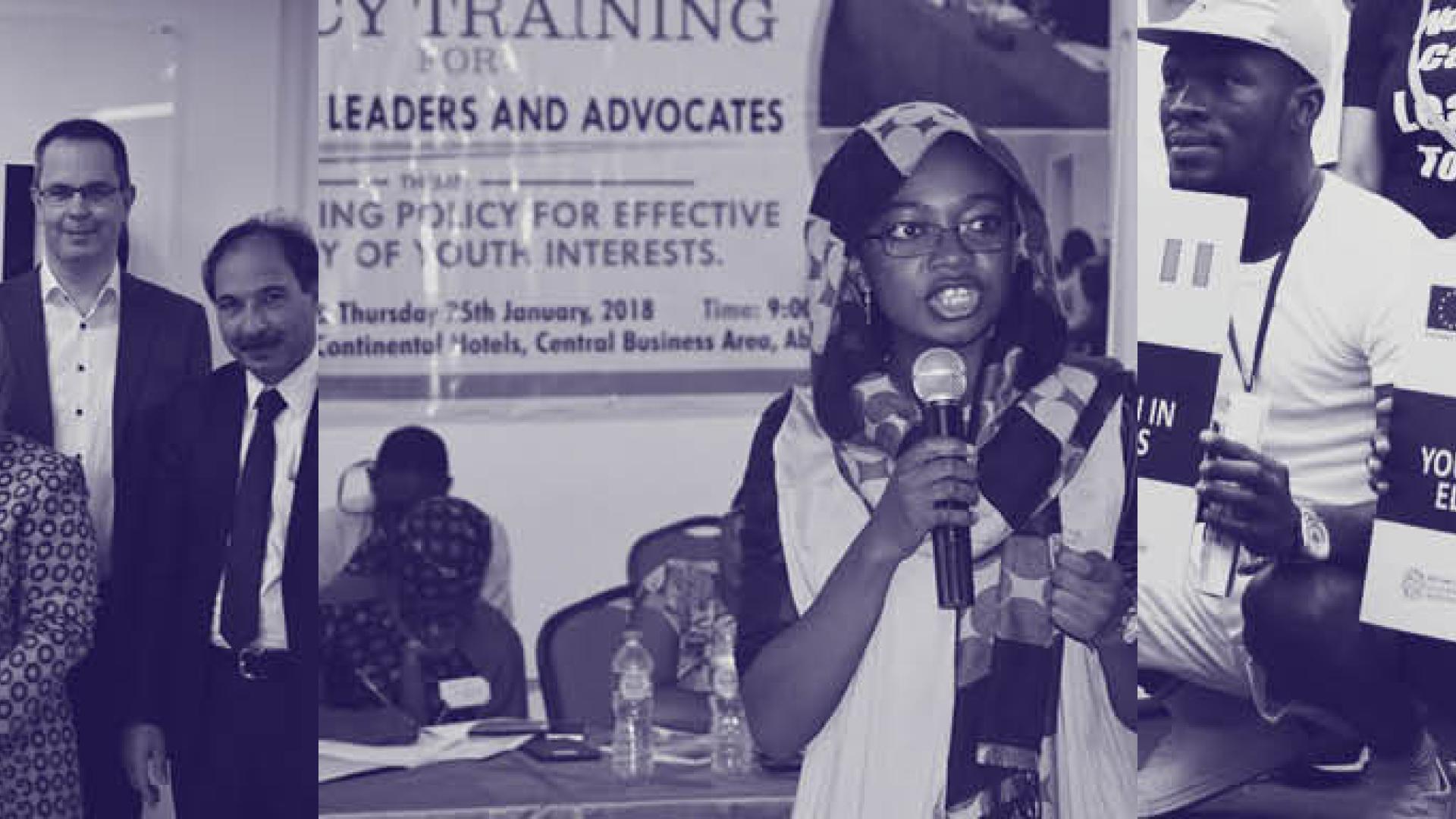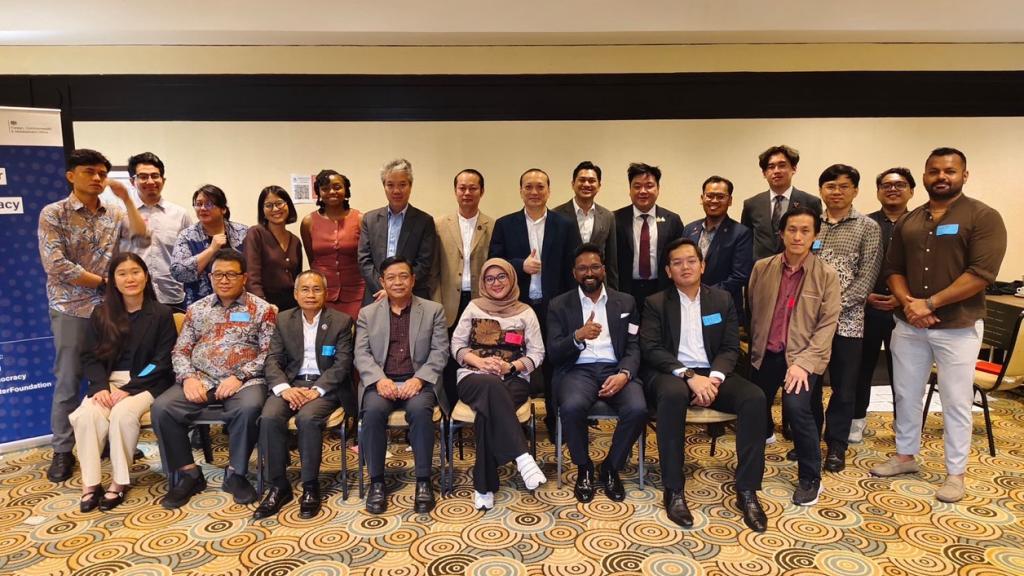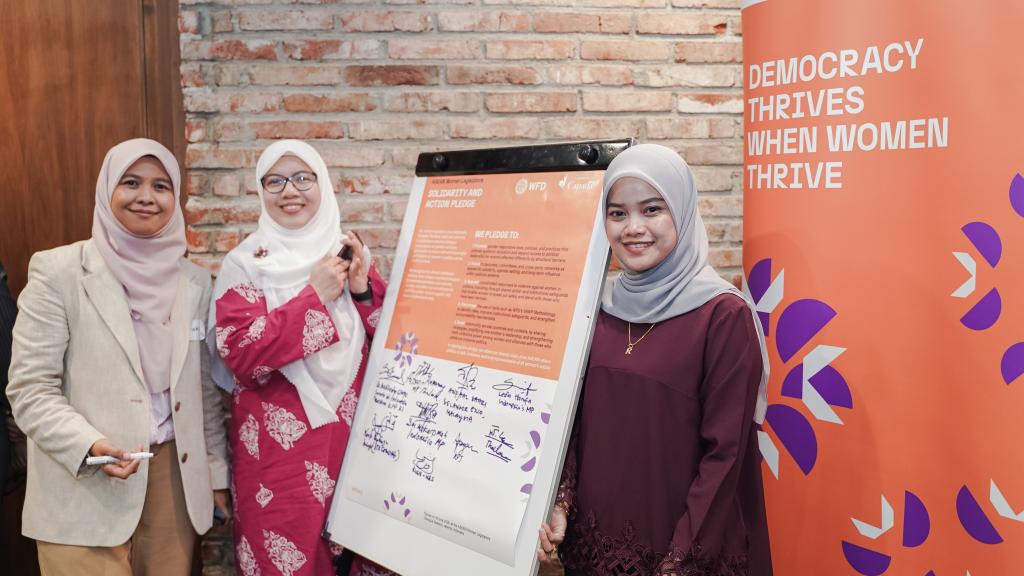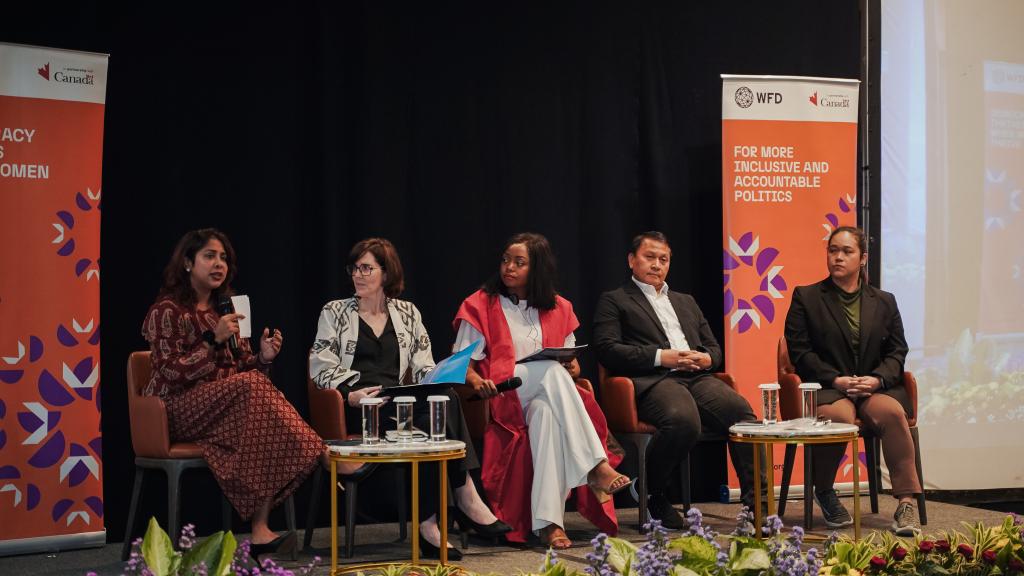Climate action at the forefront: WFD demands G20 parliamentarians to do more, faster

Indonesia has leveraged its G20 Presidency this year to galvanise multilateral cooperation in addressing many global challenges and threats. On top of the COVID-19 pandemic which the world is still recovering from, the 372 meetings across different working groups that had taken place up to the first week of October have touched on issues from food and energy security, global economic crisis, geopolitical tensions, and climate change.
Since launching the its Environmental Democracy Initiative in 2020, WFD has established itself as a key partner to the Indonesian House of Representatives (DPR RI) as it continues to build up commitments to stronger climate action domestically and internationally. To date, with the support of the UK PACT (Partnering for Accelerated Climate Transition) programme, WFD has supported the parliament in incorporating the regulatory impact assessment method into its pre-legislative scrutiny process, introducing the green budgeting framework to support its budgeting functions, refining its renewable energy bill, and raising the issue of climate change among world parliamentarians at this year’s IPU general assembly.
On 15 September 2022, along with the International Conservation Caucus Federation (ICCF), WFD and DPR RI co-hosted a parliamentary forum on ‘Mitigating Climate Disasters through Green Economy’. During the forum, the Deputy for Disaster Prevention at Indonesia’s National Agency for Disaster Countermeasures (BNPB) Prasinta Dewi shed light on the high costs of climate disasters on economic and development growth while Emma Rachmawati of the Indonesian Ministry of Environment and Forestry (KLHK) shared the government’s efforts in introducing locally rooted solutions to the global problem of climate change. In response, Mercy Barends, Chair of the Green Economy Caucus of DPR RI, discussed the opportunity to shift to a green economy framework to strike a balance between development and nature preservation; followed by Bobby Rizaldi, Chair of the Ocean Caucus of DPR RI, who emphasised the need to optimise Indonesia’s competitive advantage in marine economy and conservation in addressing climate change.
This forum provided a much-needed context leading up to the 8th G20 Parliamentary Speakers’ Summit (P20), during which WFD collaborated with DPR RI to further raise demands for stronger climate actions from parliaments of the world’s top 20 economic forces and beyond. On 5 October 2022, in a proceeding opened by remarks from Fadli Zon (Chair of the Inter-Parliamentary Cooperation Committee of DPR RI), Airlangga Hartarto (Coordinating Minister for Economic Affairs of Indonesia), and Puan Maharani (Speaker of DPR RI), WFD co-hosted a parliamentary forum discussing the role of parliaments in strengthening multilateral cooperation, especially in raising ambitions to meet the minimum target of keeping global warming level to 1.5° Celsius by 2030.
Speaking at the forum, Speaker of the House of Commons of the United Kingdom and WFD Patron, Rt. Hon. Sir Lindsay Hoyle, says that “climate change emergency is one of the most pressing crises” that the world is facing today. He quoted Harriet Baldwin, Chair of the British Group of the Inter-Parliamentary Union (BGIPU), who stated “Parliamentarians are the essential drivers in the fight to end climate change because they can advocate, communicate, legislate, scrutinise, as well as represent the communities” at COP26 in Glasgow last year. Reflecting on the UK experience as COP26 President, the Commons speaker emphasised the need to work on climate change with cross-sectoral stakeholders and cross-party committees to ensure that “the need for scrutiny and accountability go beyond individual government departments”.
Echoing the same sentiments, Tiza Mafira, Director of Climate Policy Initiative (CPI) Indonesia, who spoke in the same panel says that “the climate crisis is not slowing down” and so the solutions need to come in “speed and scale” –– reminding the parliamentary leaders in attendance that we are only 8 years away from the 2030 milestone of slashing carbon emissions by half and that parliaments can –– and should –– play central roles in ensuring the targets are met. To this, Vice-Chair of the Inter-Parliamentary Cooperation Committee of DPR RI, Putu Supadma Rudana, calls for developed countries to deliver on the joint goal of mobilising US$ 100 billion to assist developing countries in mitigating and adapting to the impact of climate change based on their national capacities and capabilities. Speaking to the importance of balancing the pursuit of economic growth and protecting the environment, Rudana draws from the philosophy of Tri Hita Karana, which in his native Balinese philosophy dictates happiness to come from nurturing relationships with the deity (Parahyangan), with fellow human beings (Pawongan), and nature (Palemahan).
Noting the urgencies to act faster and be more ambitious, we applaud leaders of the P20 Summit for acknowledging that “economic growth and increased human activities must respect the physical environment and be compatible with ensuring a low-carbon, climate-resilient and nature-positive future for the planet and the people” and that “G20 countries need to accelerate the transition of their economies to better harness the opportunities that arise from a green economy perspective” in its Chair’s Summary document produced at the conclusion of the meetings on 6–7 October 2022. Furthermore, the P20 leaders agree to “encourage the G20 to step up the fight against climate change and efforts to meet Paris Agreement targets" while “honouring common but differentiated responsibilities, respective capabilities and in the light of different national circumstances” and urging them to “lead by example by becoming greener and reducing their own carbon footprint”.




